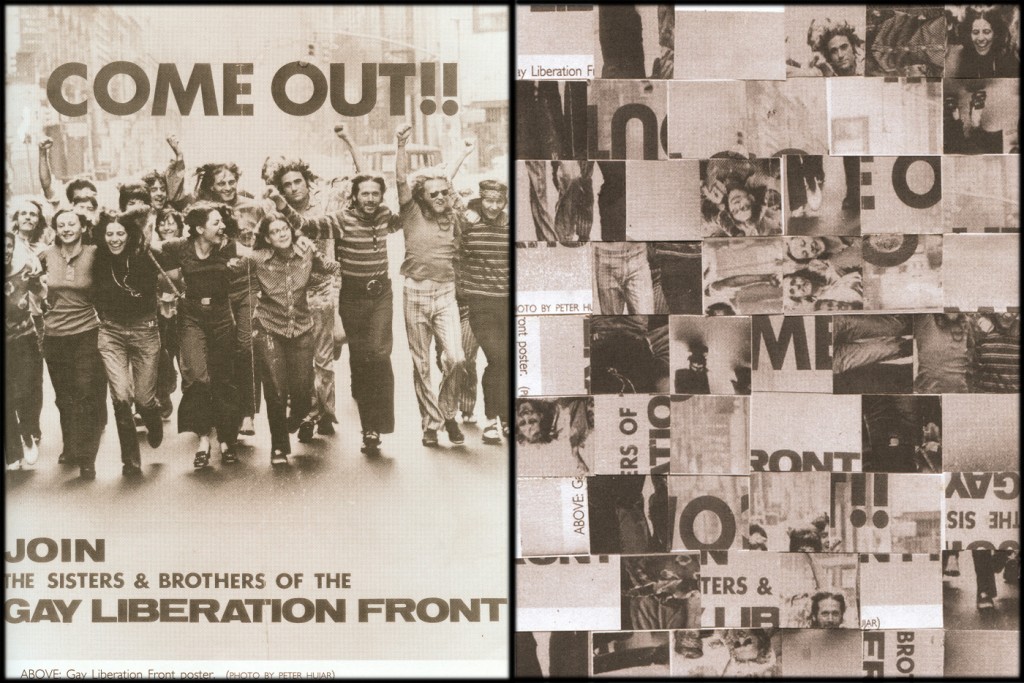ON COMMUNITY: an Editor’s Letter by Christopher J. Lee
|
My work with RECAPS is premised on a critical engagement of ‘community’— an operation that, staged directly, resembles the most basic unit of definitional inquiry (i.e. ‘what is community?), and staged incessantly, resembles a rhizomic network of interrogative energy, concretized in a never-ending chorus of clarifying questions: who decides what counts as community? What positions of privilege are selected for representation, and for what reasons? Does community belong to normativity? Does community belong to norms (!!!)? Does queer community exist? Can it be allowed to exist? Do queers want it to exist? If I hesitate at the invocation of community, if I exert systematic (or symptomatic) suspicion at the spectacle of its naming, I do so, ironically, in good company. The paranoid position, as the late Eve Sedgwick suggested, is the diagnostic condition of queer theory, the “self-evident imperative force” that makes possible the uncovering and undermining of occluded mechanisms of power.[i] The idea of ‘community’ is one such mechanism, and it is a particularly potent one. The formation of community is never an innocuous project; the assumed or expressed conditions for membership within established groups intimate elaborate rituals of inclusion and exclusion. Community implies allegiance, allegiance implies imposition, imposition implies systems of regulation and surveillance. Queer theory is attuned to the spectral danger of community because the situation of queerness—as David Halperin calls it, an “identity without an essence”— is especially susceptible to abjection.[ii] My own participation in RECAPS can be traced to some nebulous attempt at community-construction; my stake in queer study is the effect of arbitrary but meaningful contacts: chance encounters coincident to discussions of risk and resistance. Queer theory, of course, revels in chance encounters. Capricious conditions are well-primed for the paranoid position in that the paranoiac is always ‘missing something.’ Fleeting relations foster chiefly a transient intensity and its subsequent and necessary loss. The aftermath is a nostalgia well-founded in queer study. The elaboration of a palpable absence precipitates the watchful gaze of the paranoid position: ghosts around every corner, artifacts in every object, every action a memorial to lack. Thus Foucault speculated that “the best moment of love is when the lover leaves in a taxi.”[iii] I have not ‘met’ most of the contributors represented in this project. I have not traced their transmissions to substantiated origins, the bodily authors to which this assemblage is indebted. But their absence is felt, and it is felt deeply. It is a nostalgia for unrealized or impossible encounters, meetings which I have not and may not experience. Community—for all of its showy symbolism, for all of its mobilization within political discourse—aspires at the organization of will into concern. Where community becomes problematic is in its action: the designation of those insular values through which communal concern is reified and regulated. The binary biases to which community has been normatively pinned—practical over theoretical, proximal over distal, physical over virtual, familiar over foreign—are reversed in respect to RECAPS. The constituent pieces of this project are drawn from scattered and estranged places: disparate fields conveying disparate investments across disparate localities in disparate media. The paradoxical promise is that their consolidated arrangement in virtual space, diffused en masse, can engender simultaneous concern for mixed materials that may, indeed, be irreconcilable. The hope, my hope, is that this project can inspire concern in spite of shared telos, in spite of clear vision or coherent narrative. A model takes shape in place of the overdetermined figure of ‘community,’ something stranger and less known, where deviating objects of opportunity enshrine chance encounters and missed connections. [i] E. Sedgwick, Touching Feeling: Affect, Pedagogy, Performativity (Durham, NC: Duke University Press 2003), p. 127. [ii] D. Halperin, Saint Foucault: Towards a Gay Hagiography (New York, NY: Oxford University Press 1997), p. 62. [iii] M. Foucault, Foucault Live: Interviews 1961-84 ( New York, NY: Semiotext(e) 1996), p. 330. |
